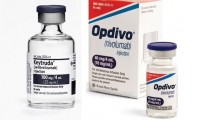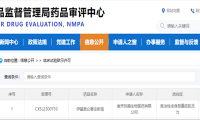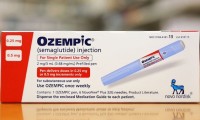-
Merck’s Keytruda extends life for kidney cancer patients after surgery, while Bristol’s Opdivo fails again
- Source: drugdu
- 96
- January 30, 2024
-
Drug shortages challenge type 2 diabetes patients in the UK
- Source: drugdu
- 91
- January 30, 2024
-
Bladder Cancer Therapies Developer Raises $380M in the First Biotech IPO of 2024
- Source: drugdu
- 86
- January 27, 2024
-
IASO Bio’s IND application for new autoimmune indication of Equecabtagene Autoleucel Injection approved
- Source: drugdu
- 86
- January 27, 2024
-
Eli Lilly Sounds Off as Early Data Show How Gene Therapy Can Restore Hearing
- Source: drugdu
- 84
- January 26, 2024
-
Reuters
- Source: drugdu
- 144
- January 26, 2024
-
Bristol Myers shows power of Opdivo-Yervoy combo in first-line colorectal cancer subset
- Source: https://www.fiercepharma.com/pharma/bristol-myers-shows-opdivo-yervoy-dual-immunotherapys-power-first-line-colorectal-cancer
- 102
- January 24, 2024
-
Gilead Drug Fails Pivotal Lung Cancer Study, But Still Might Have Path Forward
- Source: https://medcitynews.com/author/fvinluan/
- 179
- January 24, 2024
-
Lilly’s Jaypirca tipped to capture 60% of BTK leukemia market, leaving AstraZeneca, BeiGene in the dust
- Source: https://www.pharma.com/marketing/lillys-jaypirca-tipped-capture-60-btk-leukemia-market-leaving-astrazeneca-beigene-dust
- 156
- January 24, 2024
-
Opdivo Plus Yervoy Reduces the Risk of Colorectal Cancer Disease Progression or Death by 79% Versus Chemotherapy
- Source: https://www.pharmexec.com/authors/don-tracy-associate-editor
- 76
- January 24, 2024
your submission has already been received.
OK
Subscribe
Please enter a valid Email address!
Submit
The most relevant industry news & insight will be sent to you every two weeks.













